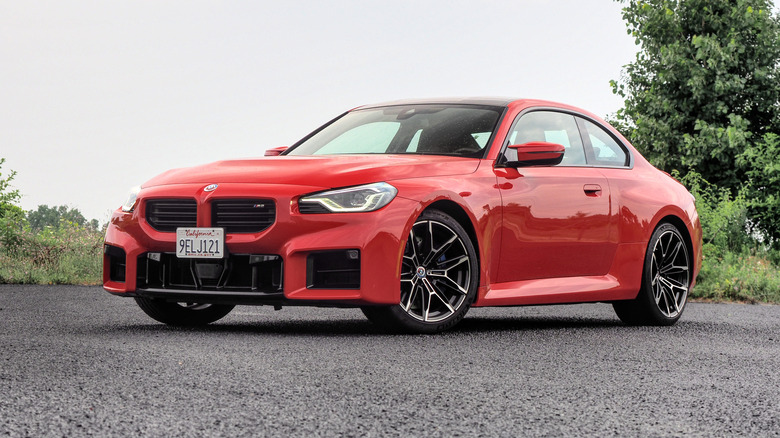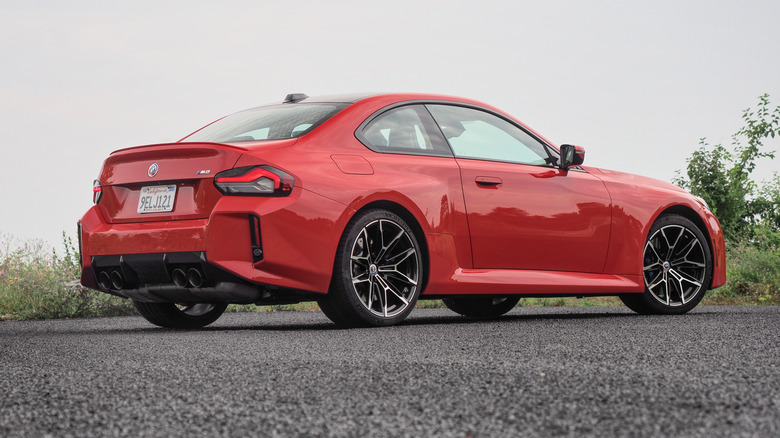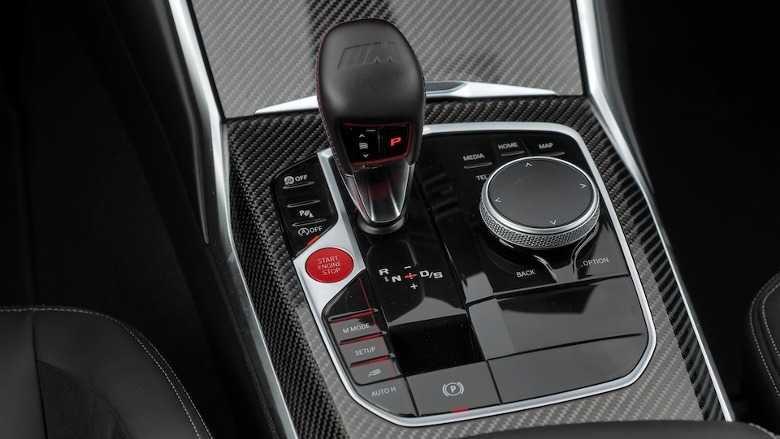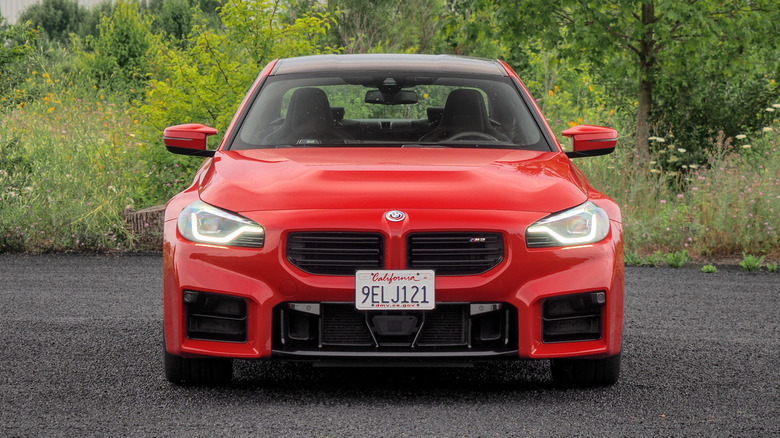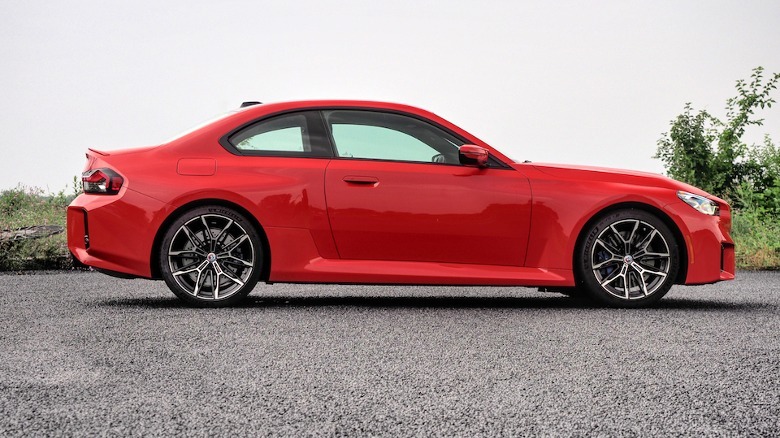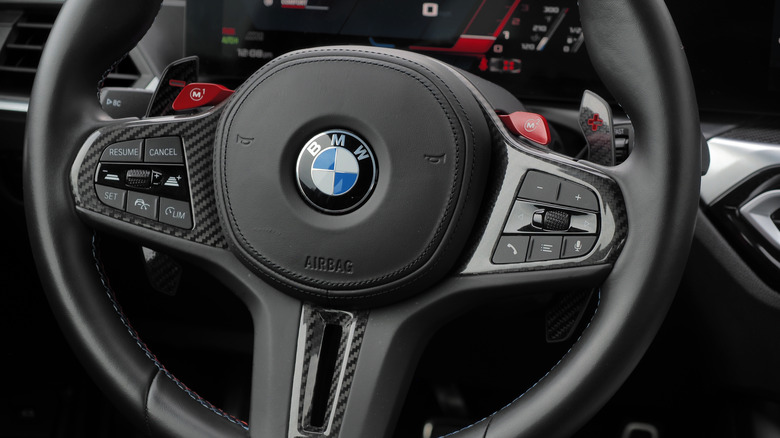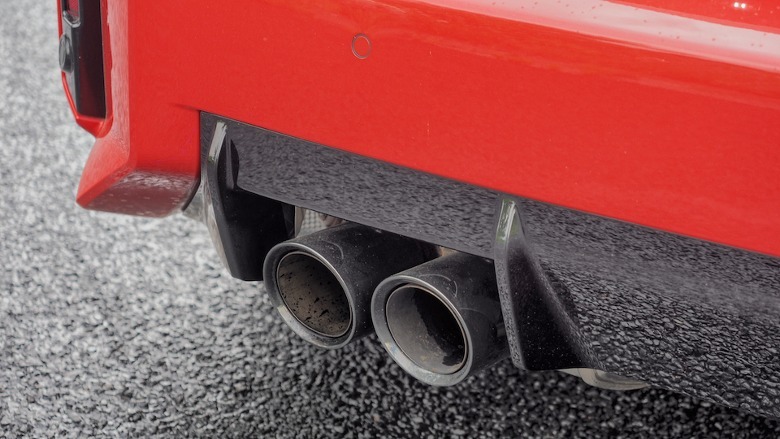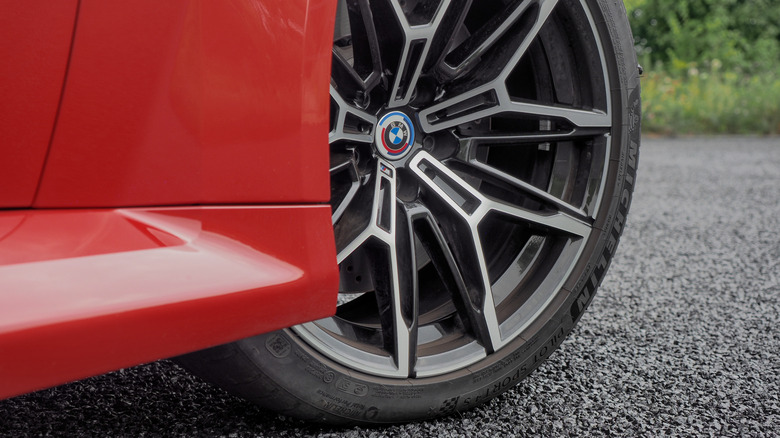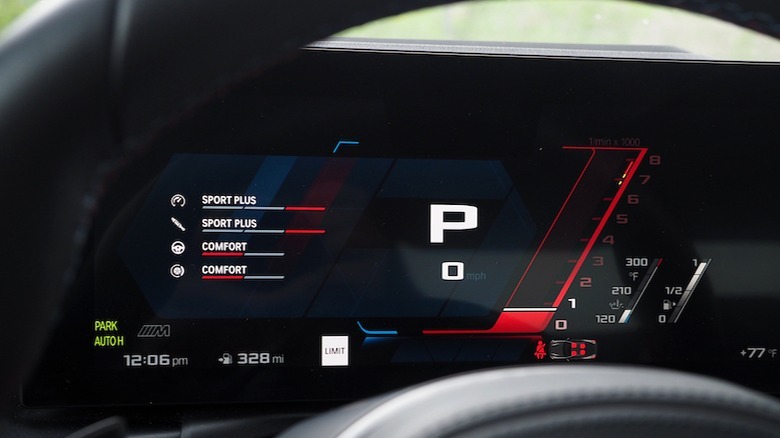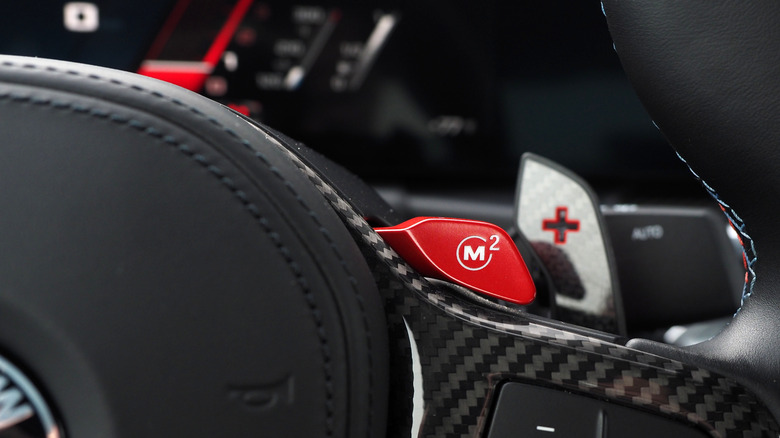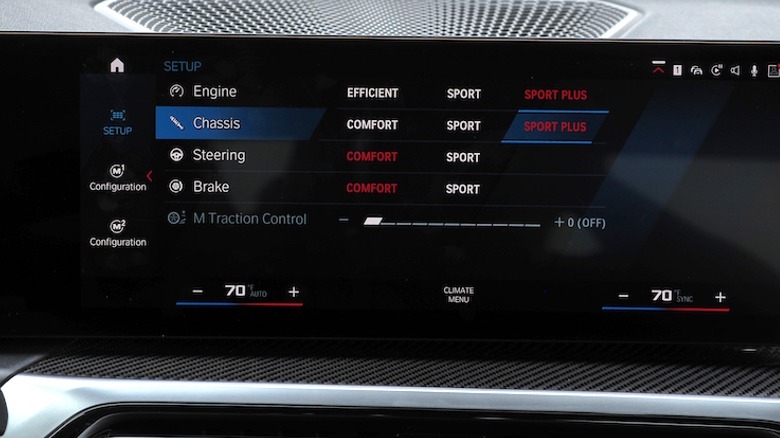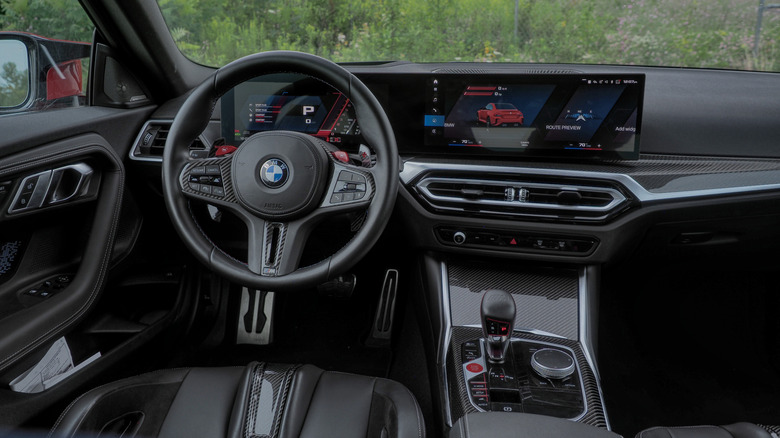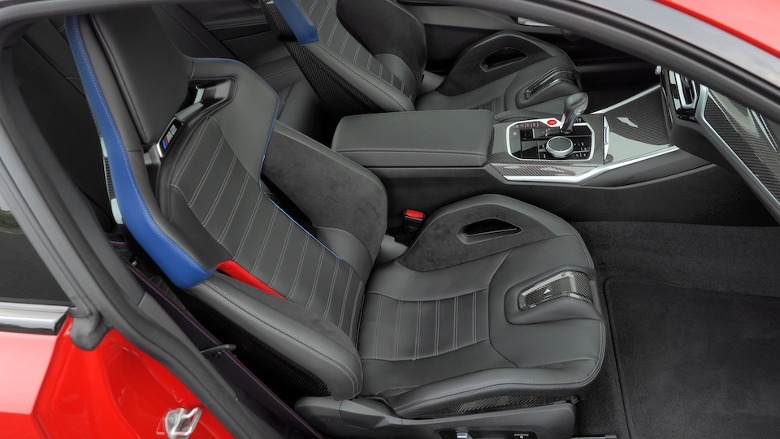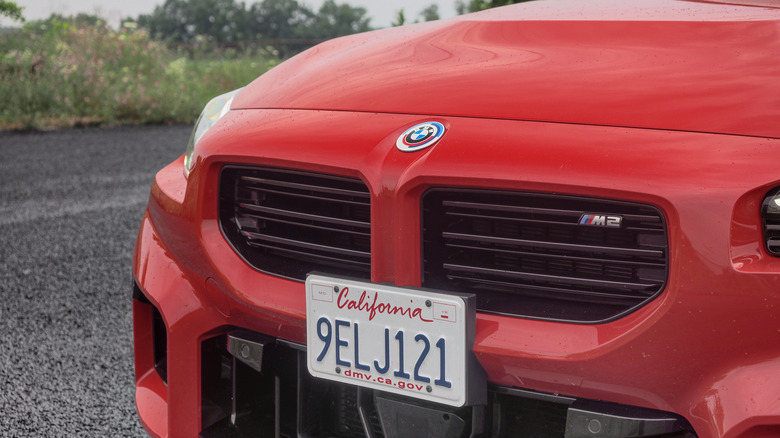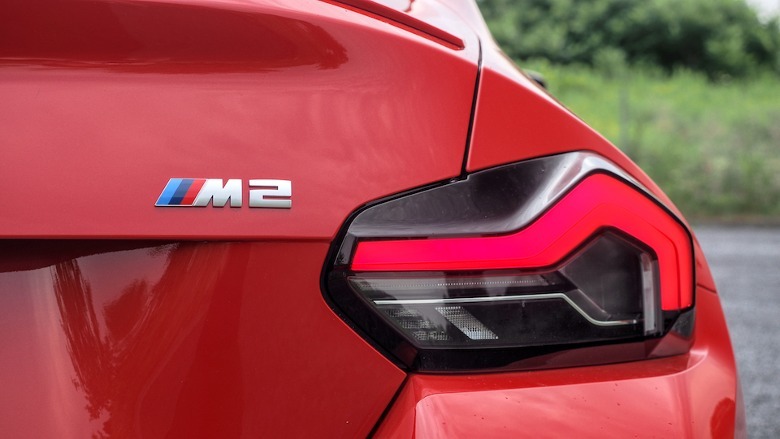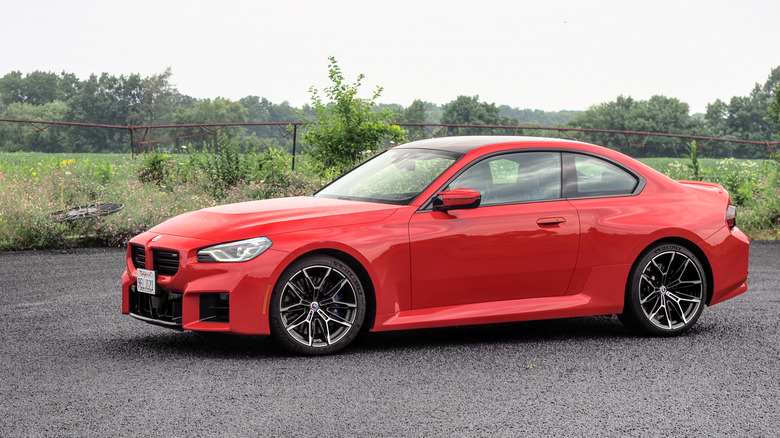2023 BMW M2 Review: Too Good To Be True
- 3.0L twin-turbo engine is a potent gem
- Aggressively affordable
- Wildly proficient in corners
- Cabin is hardly practical
- Thirsty engine
- Divisive styling
I don't want to accuse BMW of making a terrible mistake with the 2023 M2, but you have to wonder if the German automaker has forgotten the whole point of its most affordable M Series car. After all, there's a reason models like the M2 coupe are billed as a gateway for future brand loyalists, and the strategy there is simple. Give drivers a taste of the good stuff, and then encourage them to upgrade to better, more expensive metal later on.
The M2's big problem, though, is it might be too good for that strategy to work as expected. This isn't just a two-door tease of the joys that might come with M3 or M4 ownership, or even a slightly feistier version of the regular 2 Series Coupe. Instead, I can only assume BMW's M division went rogue from the product planners and — ignoring all wise sales strategy — threw everything they could into making a new benchmark in subcompact luxury performance.
BMW's goof is, happily and hilariously, our gain.
One huge decision
Entry to the M2 club starts at a surprisingly reasonable — in the grand scheme of sporty German things — $62,200 (plus $995 destination). As you've probably already predicted, BMW's lengthy list of potential options and extras can then take their toll. The $9,900 of the Carbon Package, which includes the handsome 19-inch bicolor light alloy wheels you see here, is the biggest single item, though adaptive full-LED lights, active cruise control, and a head-up display do help contribute to the final $76,545 all-in price.
What you don't pay more for is BMW's eight-speed M Steptronic transmission. That's a no-cost option in place of the M2's standard six-speed manual, and probably the toughest decision any buyer is going to make.
This is usually where the impassioned plea to support manual gearboxes goes, and don't for a minute think that I'm going to dissuade you from selecting one of the few remaining stick shifts in BMW's line-up. That said, BMW's automatic is a lovely thing too, with crisp carbon-fiber paddle shifters and a near-prescient willingness to snap you into the best gear for maximum fun. You'll lose no enthusiast credibility with me if you choose it over the manual.
Love it or hate it, at least the grille isn't huge
BMW finds itself in aesthetic deep waters these days, its current design language far from pushing the buttons of every observer. The M2 avoids what's arguably the most contentious flourish: its squared-off grille escapes the outsized proportions that have spread through much of the rest of BMW's line-up.
That alone would probably endear some onlookers, but the automaker's decision to extend that sharp-angled look to the rest of the compact coupe's bodywork is what has ended up polarizing. The lower front fascia looks as though BMW's design team was challenged to use only a ruler as they sketched it; the M2's rear haunches are cartoonishly swollen, as though caught mid-inflation on the same machine that makes hard-sided suitcases.
The M2's truncated dimensions only emphasize the decisions made, here. Although it's the same width as BMW's M3 and M4, more than 4 inches have been trimmed from the wheelbase. Side-on, it's reminiscent of a Hot Wheels toy; from the rear, the pinched lower bumper and quartet of stubby exhausts make you feel as though you should pull it back and release it in order to hit the claimed 3.9 second 0-60 mph time for the automatic.
A proven M heart
You don't have to do that, of course, just plant your foot on the accelerator and allow the excellent 3.0-liter BMW M TwinPower turbo to deliver its six-cylinder magic. In M2 form it's tuned for 453 horsepower and 406 lb-ft of torque, though while your bragging rights may be slightly dampened by a 20 hp loss compared to the M3 and M4, the fact of the matter is that you really won't miss it.
With the stick shift, BMW says 0-60 arrives in 4.1 seconds. The slick-shifting automatic — as fitted to this review car — trims two-tenths of a second from that. Top speed is 155 mph, which can be pushed further north with the M Driver's Package and $2,500 of your money. Then, the limiter kicks in at 177 mph.
Going fast in a straight line is certainly entertaining. The M2 pulls eagerly, and with a marvelous soundtrack as it does so. You'll probably want to hit the button that unlocks the maximum song from those four tailpipes, too (unless it's early morning and your neighbors are still snoozing). A broad torque band — 2,650 to 5,870 rpm — means downshifts aren't always required, but there's nothing quite like the kick off the 8-speed set to its most urgent.
Heaven in the bends
Corners, though, are where the argument for an M2 just clicks. BMW wisely hides none of its prowess in the twists behind paid options: the M Sport Differential (shuffling power between the left and right rear wheels) and the Adaptive M Suspension (spanning Comfort through Sport Plus levels of stiffness) are both standard.
The result can be as controlled or as tail-happy as you like. The M2 is capable of near-surgical finesse, with an unexpected degree of forgiveness should you get too enthusiastic. It's flat, balanced, and communicative, and usually what it's communicating is "I've got this, push a little harder, okay?"
Once upon a time, BMW's drive modes were a simple escalation from Comfort through to Sport. These days, they cater to those drivers who want to tweak and customize, with individual adjustments to suspension, steering weight, brake intensity, powertrain, and transmission shift aggression. You can also dial in different levels of Dynamic Stability Control, to suit your road, mood, and bravery levels.
From smooth to scalpel
The result is flexible but can be a little overwhelming. The good news is that the M2 has BMW's pair of shortcut toggles on the steering wheel, and each red anodized metal tab can be set to summon a driver-set configuration. Want the engine and transmission at their most hectic, but the suspension dialed back because your local roads aren't Autobahn-smooth? That mix can be a button press away.
Even with everything set to its tamest option, the M2 isn't going to be confused for, say, a 3 Series sedan. Yet neither will it forcibly eject your teeth simply for the audacity of taking a rough road at speed. Apart from the potential time-sink of seemingly every person in a Mustang wanting to race you at any and every opportunity, the M2 would actually make a surprisingly good daily-driver.
Well, assuming you make the right decisions when it comes to interior spec, that is.
A familiar cabin is no bad thing
At this point, it's not unfair to say that most BMW cabins share the same core aesthetic: what you see in the M2 isn't really all that different from its more expensive cousins. That's no bad thing: a 12.3-inch digital instrument cluster for the driver is accompanied by a 14.9-inch infotainment touchscreen. BMW's UI is reasonably straightforward — though the long list of app icons can be a bit overwhelming, even if you're parked up — but iDrive 8 can be controlled by voice, instead.
Navigation along with wireless Apple CarPlay and Android Auto are also standard, together with dual-zone climate control. Harman Kardon audio, heated front seats, keyless entry, and parking sensors front and rear also come with every M2. Skip the carbon pack and you get a glass moonroof, too.
I could happily sacrifice the M Carbon Bucket Seats which also come in that package. They're snug, and grippy, and do everything you might want in terms of holding you in place, but then BMW adds a chunky between-thigh bump that spoils day-to-day comfort. Maybe if the M2 is your regular little track star then that's okay, but it's tedious the rest of the time.
Four's a crowd
There are two seats in the rear of the M2, but they're vestigial at best. Better to consider them leather-trimmed storage for a backpack or purse, or — since they drop down — to expand the 13.8 cubic feet of trunk space. That's actually more room than you get in the M4 coupe's trunk.
Fuel economy can come out slightly ahead of the M4 (transmission depending) too, though neither car is exactly frugal. The M2 manual is rated for 16 mpg in the city, 24 mpg on the highway, and 19 mpg combined; opt for the automatic, and the highway economy dips a point, to 23 mpg.
As for warranty, the 2023 M2 gets BMW's four year / 50,000 mile limited warranty, four years of roadside assistance, and 12 years of unlimited mileage rust perforation coverage. There's also three years / 36,000 miles of included scheduled maintenance.
2023 BMW M2 Verdict
Some cars seem too good to be true. No, the 2023 BMW M2 isn't inexpensive — and there are some excellent, half-the-price options out there which will also put a serious grin on enthusiasts' faces — but the fact that this is considered the entry point to M ownership, and yet delivers so much, is remarkable.
My usual complaint with BMW (and, for that matter, many of its luxury counterparts) is that the starting price is fairly pointless, as you really need to load up on options before things get rewarding. Yet you could absolutely grab a "base"-spec M2, spend nothing extra bar the destination fee, and be wildly, outlandishly entertained to the point of perma-grin status. All that for $14k less than an M3 sedan, and $16k less than an M4 coupe.
Clearly, the dimensions count it out if you need family transportation, and the M2's thirst means that running costs are a consideration. Maybe the design is a dealbreaker for you. Nonetheless, these are vague and easily ignored downsides. BMW's M line-up isn't short on appealing cars, but the M2 isn't just the cheapest, but arguably the most compelling of them all.
